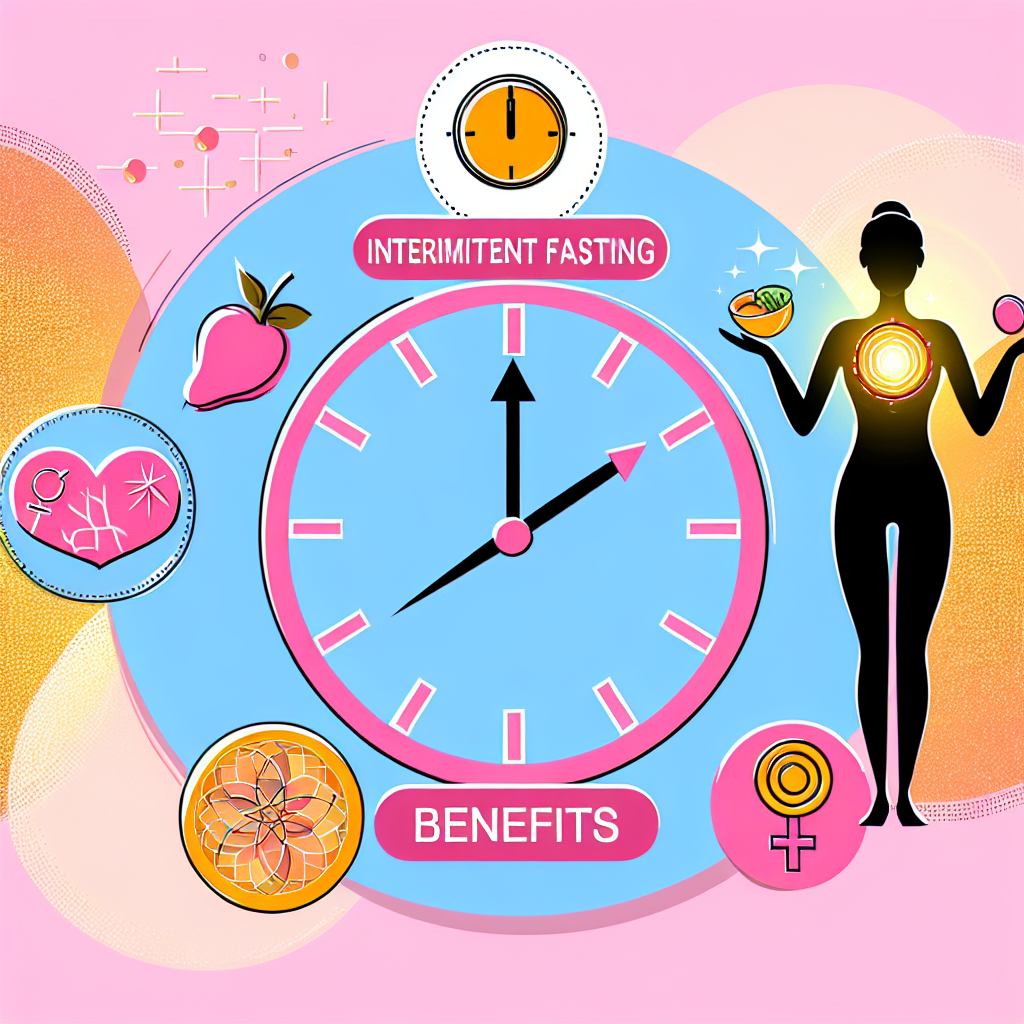Intermittent Fasting Benefits for Women’s Health
Introduction
In a world increasingly focused on wellness innovation, one health trend has transitioned from a niche concept to a sophisticated lifestyle choice—intermittent fasting (IF). While rooted in ancient practices, this contemporary application of time-restricted eating has gained popularity among women seeking holistic approaches to vitality, beauty, and longevity.
More than just a dietary fad, intermittent fasting supports a lifestyle of intentional nourishment and metabolic balance. Especially appealing to high-achieving women who juggle careers, travel, and mindfulness, IF integrates seamlessly into a curated wellness regimen. Its appeal lies in its simplicity—aligning eating windows with the body’s natural rhythms—while requiring no calorie counting or extreme restrictions.
The most popular method, the 16:8 fast, involves fasting for 16 hours with an 8-hour eating window. For women, this approach may support hormonal harmony, reduce systemic inflammation, and improve cognitive function—delivering a compelling mix of health and elegance. Whether adopted from Silicon Valley’s biohacking elite or embraced during serene retreats in Mykonos, this practice is increasingly seen as a luxurious gateway to internal alignment.
However, it’s vital to personalize fasting around women’s physiological needs. Monthly hormonal fluctuations require any fasting regimen to be approached with flexibility and mindfulness. Done properly, intermittent fasting becomes more than a tool for weight balance—it transforms into a sustainable lifestyle choice that fosters clear skin, improved mood, and improved energy levels.
For the modern woman committed to clean beauty, wearable wellness, and refined living, intermittent fasting offers a thoughtful shift from deprivation to empowerment. It’s not about consuming less—it’s about consuming wisely. In this light, intermittent fasting is a beacon of health optimization, supporting women in living vibrantly, powerfully, and purposefully.
Featured Evidence-Based Benefits of Intermittent Fasting for Women
Modern science has uncovered unique advantages of intermittent fasting for women, rooted in the interplay between nutrition, hormones, and cellular regeneration. Adopting a fasting schedule while respecting feminine biology can dramatically improve short- and long-term health.
One of the most significant benefits is improved insulin sensitivity. A study in the journal Cell Metabolism revealed that intermittent fasting increases insulin control, which is crucial for women during perimenopause and menopause—times when the risk for insulin resistance, weight gain, and Type 2 diabetes rises significantly. Enhancing insulin efficiency not only reduces disease risk but also contributes to stable energy and mood.
Another important finding relates to growth hormone (GH) enhancement. GH supports muscle tone, fat metabolism, and skin elasticity, and naturally declines with age. According to the New England Journal of Medicine, intermittent fasting uniquely encourages GH secretion—helping women maintain lean muscle mass and youthful skin into midlife and beyond.
Inflammation reduction is another vital benefit. Chronic inflammation is a root cause of conditions such as skin aging, autoimmune disease, and cardiovascular issues. In a clinical trial in the journal Obesity, fasting women showed a marked decrease in C-reactive protein—an inflammatory biomarker—demonstrating the anti-inflammatory power of intermittent fasting.
The brain also benefits significantly. IF has been shown to increase brain-derived neurotrophic factor (BDNF), a key protein for memory and mood resilience. Findings from the National Institutes of Health underscore how fasting improves brain plasticity and strengthens protection against age-related cognitive decline. For ambitious, mindful women, this mental uplift enhances everything from workplace performance to emotional stability.
It’s important, however, to approach intermittent fasting with sensitivity. For women who are pregnant, underweight, or healing from eating disorders, this practice may not be suitable. A gentle approach, such as a 12:12 fasting schedule, is recommended when beginning, allowing the body—and menstrual cycle—to signal how well it’s adapting.
How Intermittent Fasting Elevates Everyday Wellness
Incorporating IF into daily life doesn’t require dramatic shifts. Instead, it involves reimagining mealtimes around intentional nourishment, self-awareness, and hormonal alignment.
For example, a woman may choose to break her fast at 10 a.m. and eat her final meal by 6 p.m., consuming nourishing whole foods during that period. Fiber-rich vegetables, clean proteins, healthy fats, and antioxidant-rich herbs all support a smoothing fasting transition. Staying hydrated and reducing caffeine also help maintain steady energy.
Many women report improvements in skin clarity, digestive health, and better sleep—key factors in achieving glowing physical vitality. With fewer late-night meals, the digestive system gets rest, contributing to reduced bloating, better nutrient absorption, and a rebalanced gut microbiome.
Moreover, the emotional clarity and self-discipline developed through this practice ripple into other areas—whether career ambition, creativity, or spiritual wellness. Combined with mindfulness, yoga, or breathwork, IF becomes a holistic ritual for internal alignment.
Conclusion
In the elevated world of modern wellness, intermittent fasting stands out as a refined, empowering health practice for women. With growing scientific support around its hormonal, metabolic, and cognitive benefits, it offers so much more than just weight management—it offers a roadmap to radiant longevity.
Unlike restrictive diets, intermittent fasting invites a renewed relationship with time, food, and self-awareness. When executed mindfully, it becomes an elegant lifestyle—equally at home in high-rise executive suites or barefoot beach retreats. And most importantly, it allows women to honor their bodies, rhythm, and power.
In the end, intermittent fasting is the ultimate luxury: not in what you consume, but in how you choose to live—intentionally, intelligently, and vibrantly.
References
- Cell Metabolism: The Effects of Intermittent Fasting on Metabolism
- New England Journal of Medicine: Effects of Intermittent Fasting on Health and Aging
- Obesity Journal: Intermittent Fasting Decreases Inflammation in Women
- NIH: Intermittent Fasting and Brain Health
- Johns Hopkins Medicine: Intermittent Fasting and Women’s Health
Concise Summary
Intermittent fasting (IF) offers powerful benefits for women’s health, including improved insulin sensitivity, reduced inflammation, hormonal balance, and enhanced brain function. Backed by scientific research, IF supports weight management, skin health, emotional clarity, and cognitive resilience. Especially effective for high-performing women, IF aligns naturally with modern living, encouraging intentional eating over restriction. When practiced in tune with a woman’s natural hormonal rhythm, intermittent fasting becomes a luxurious, empowering wellness ritual that fosters long-term vitality, beauty, and balance.

Dominic E. is a passionate filmmaker navigating the exciting intersection of art and science. By day, he delves into the complexities of the human body as a full-time medical writer, meticulously translating intricate medical concepts into accessible and engaging narratives. By night, he explores the boundless realm of cinematic storytelling, crafting narratives that evoke emotion and challenge perspectives. Film Student and Full-time Medical Writer for ContentVendor.com



